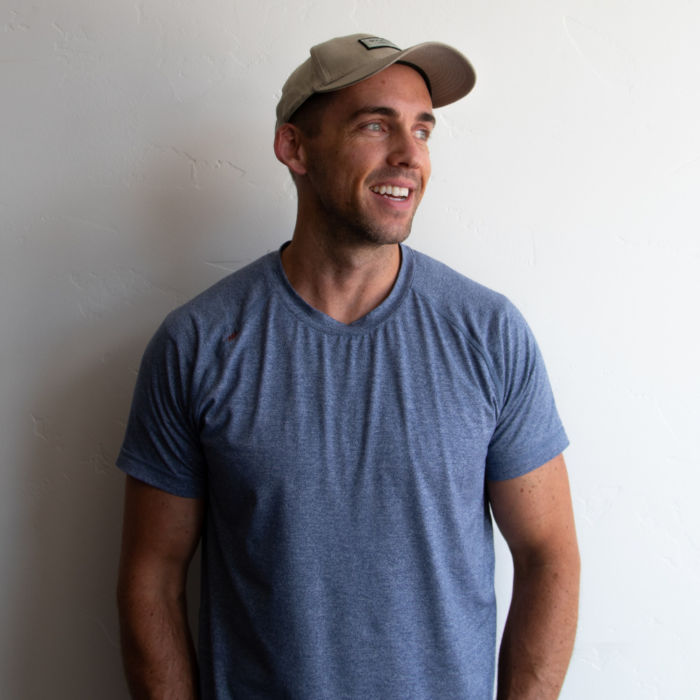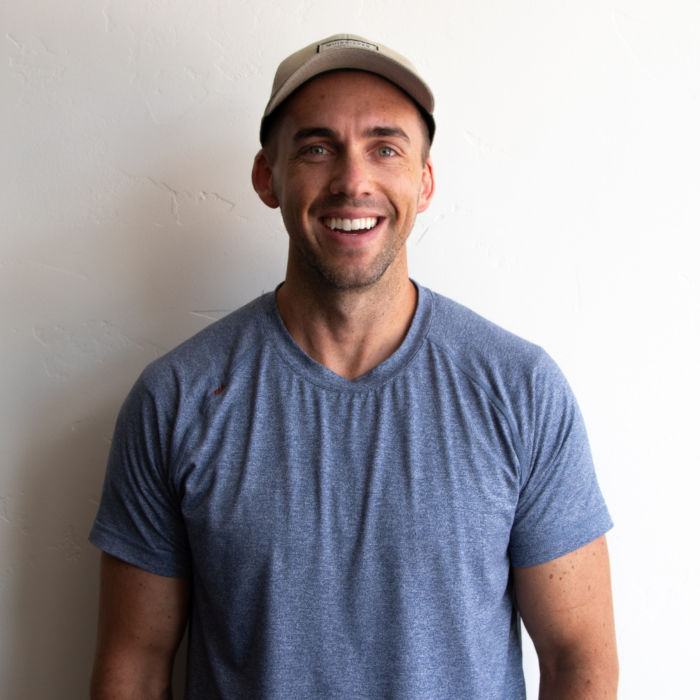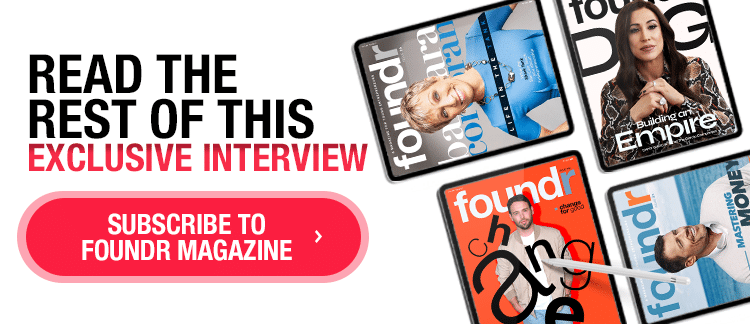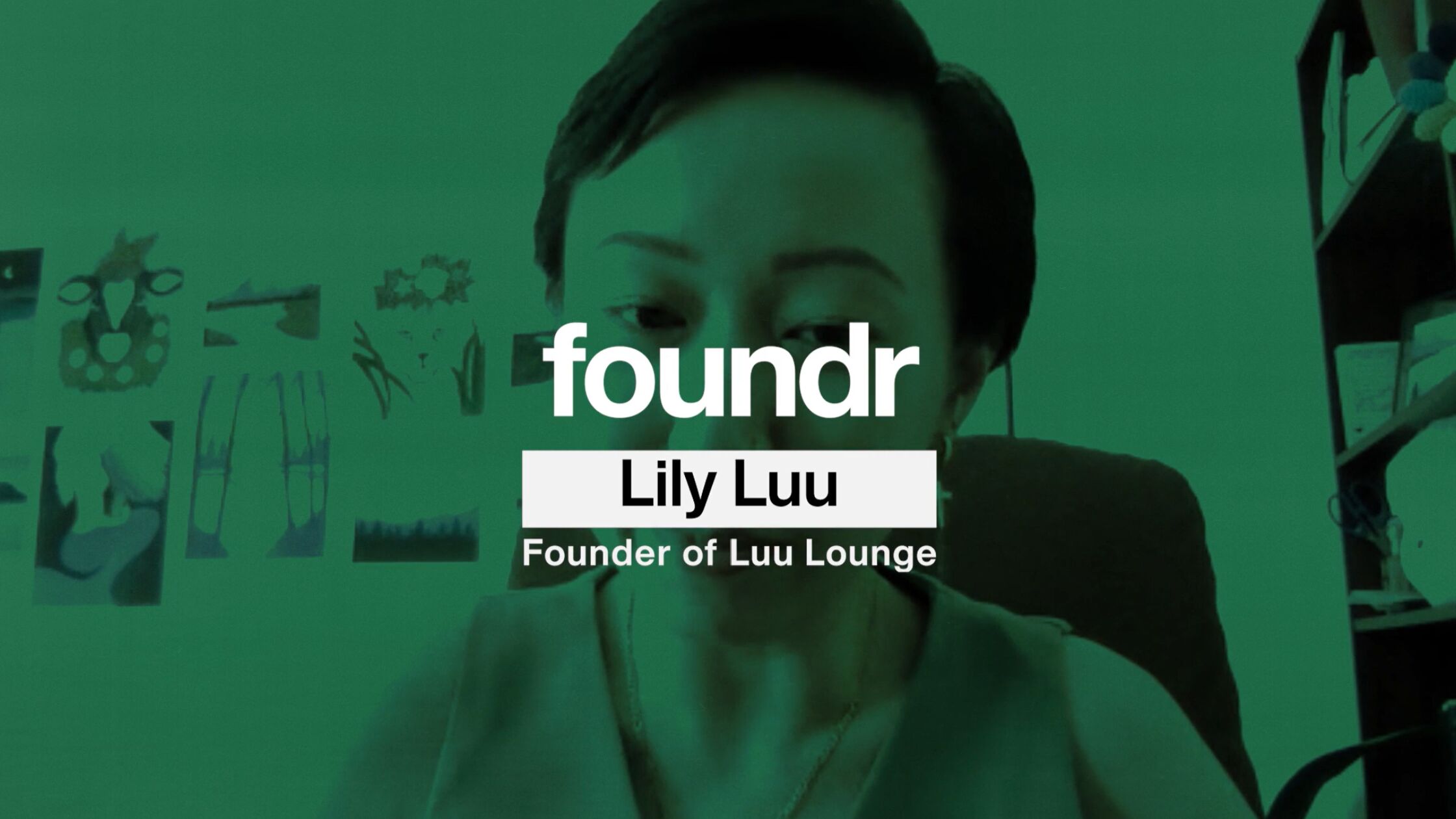Foundr Magazine publishes in-depth interviews with the world’s greatest entrepreneurs. Our articles highlight key takeaways from each month’s cover feature. We talked with Brandon Doyle, founder of Wallaroo Media, about his framework for building seven successful digital agencies. To read more, subscribe to the magazine.
—————
Where does Brandon Doyle find the time?
Since 2009, he’s started and scaled seven digital agencies across various specialties. From NFTs to SEO, Doyle’s businesses continue to expand and meet the demands for the next big thing in digital marketing.
Doyle’s secret to success is no secret. He built a repeatable agency framework that allows his team of 70 employees to meet clients’ changing expectations, big and small. So whether you are looking to scale your established agency or just starting out, Doyle’s agency tools can help you reach more clients and produce effective results.
Family Tree of Agencies
In 2012, Doyle quit his job in finance to start his agency, Wallaroo Media. He taught himself SEO during college by working as a part-time marketing specialist for his parents’ letterman jacket business.
Wallaroo Media began as a full-service marketing agency with Doyle’s SEO experience as the selling point, but it wasn’t sustainable.
“Anytime a customer or client asked for something in our general realm, if we did it, we’d say that we did it,” Doyle says.
“I didn’t feel like we were truly great at any one channel.”
In 2017, Doyle went all in on social media ads, hoping to evolve Wallaroo into an ad creative agency. But they still were getting leads for SEO. Instead of burying the expertise that got them there, Doyle created an SEO-specific agency called Pouch. The SEO specialist at Wallaroo branched off to lead Pouch and, in return, gained equity in the business.
“And basically, we kept repeating that,” Doyle says.

Doyle’s relentless pursuit of new clients and channels comes from his upbringing in the Church of Latter-day Saints, where he spent two years after graduating from BYU doing door-to-door mission work. Previously, he spent summers during college selling door-to-door alarm systems.
“When it was time to start my digital agency, I was used to hearing ‘nos,'” Doyle says.
“Persistence pays, so you have to be willing to do that.”
Doyle remembers driving to office parks and asking each business if they needed SEO services. He says selling your agency is just as important as delivering the results.
“To me, every ‘no’ is just one step closer to a ‘yes,'” Doyle says.
Find Your Niche, Then Own It
Besides knocking on doors in your local business district, what else does it take to start and grow a successful agency?
“Well, you definitely need to know how to do the work,” Doyle says. “If you don’t know how to do it, then you have to hustle and figure out how to learn.”
Doyle says that it’s never been easier to scale your expertise at speed through online courses and training. He recommends picking a niche and becoming a thought leader on the subject. Then niche down to a client level.
“If you can say, ‘I’m the best at SEO for dentists,’ then you can own that niche.”
The next step is to get a case study.
Find an initial client and offer to do work for a discounted price or free. Focus on delivering the best results possible, which means don’t try and get additional clients. Once you’ve shown the results, create a case study from that first client. Then, as Doyle says, repeat it.
“If you do that a few times, then you’ll be able to start charging market rates and just scale up from there,” Doyle says.
Another strategy is to create mocks and present them to client leads. For example, a mock could include a landing page, ad campaign, logo design, etc.
The results take time and patience. When he started Wallaroo, Doyle says its retainer rates were $150 per month, and now its cheapest clients are $4,000 per month.
“When you do it well and consistently, it’s amazing,” Doyle says. “It’s going to pay off if you don’t give up.”
Keep Learning: How to Get Clients: 16 Ways to Find (and Win) Your Dream Customers
Brandon Doyle’s 3 Levers for Client Retention
- The Work: Be the best at what you do. Let the quality and results of the work speak for themselves.
- The Relationship: Keep in close contact with your clients and build rapport with them.
- The Reports: Showcase metrics that make a difference for your client’s business with clear and concise reporting.


















